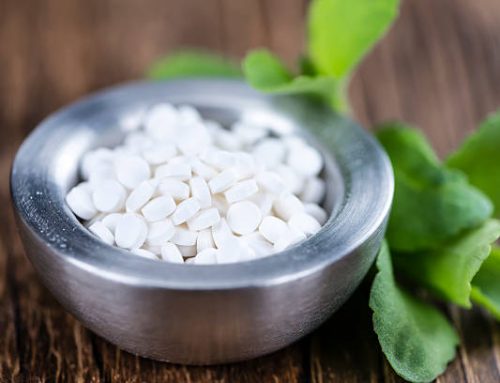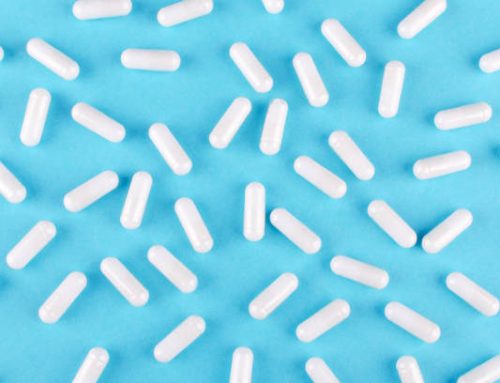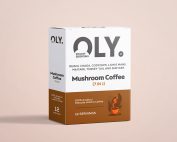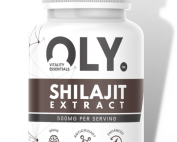The world we inhabit is filled with marvels that offer the possibility of addressing multiple afflictions we bear. Valerian, a herbaceous plant native to Europe and Asia, embodies the power of nature to calm and soothe restless minds. Its natural compounds are hailed for their sedative properties, which make it a prevalent ingredient in sleep supplements and herbal teas. For centuries, Valerian was known as the “all-heal” plant, but only in recent times has science begun to unravel the secrets of this medicinal herb. In this article, we will explore the versatility and healing potential of the Valerian plant, its impact on modern medicine, and why it has stood the test of time.

1. Tapping into Nature’s Calming Power: The Science Behind Valerian
Valerian root has been used as a natural remedy for anxiety and sleep disorders for centuries. The plant is native to Europe and Asia, and its root contains a complex mixture of compounds that produce a calming and sedative effect on the body. But what is the science behind valerian’s calming power?
Valerian root contains several active compounds, including valerenic acid, valeranone, and acetoxyvalerenic acid. These compounds work together to stimulate the production of gamma-aminobutyric acid (GABA), which is a neurotransmitter that helps to regulate the nervous system. GABA reduces the activity of nerve cells in the brain, leading to feelings of relaxation and calmness.
In addition to its effects on GABA production, valerian root also contains compounds that can bind to receptors in the brain that regulate stress and anxiety. One of these compounds is isovaleric acid, which has been found to produce significant reductions in anxiety levels in several clinical trials.
Valerian‘s calming effects have been documented in a number of clinical studies. For example, one study found that valerian root extract significantly improved sleep quality in people with insomnia. Another study showed that valerian root was as effective as benzodiazepines in reducing symptoms of anxiety in patients undergoing surgery.
Valerian is available in a variety of forms, including capsules, tablets, tinctures, and teas. However, it’s important to note that not all valerian supplements are created equal. To ensure that you’re getting a high-quality product, look for supplements that have been standardized to contain a specific amount of valerenic acid, which is one of the key active compounds in valerian root.
In conclusion, valerian root is a natural remedy that has a long history of use for anxiety and sleep disorders. It works by stimulating the production of GABA and by binding to receptors in the brain that regulate stress and anxiety. Its calming effects have been documented in several clinical studies, making it a safe and effective alternative to prescription medications. When purchasing valerian supplements, be sure to look for products that are standardized to contain a specific amount of key active compounds.
2. From Ancient Remedies to Modern Applications: Valerian in Modern Medicine
Valerian is a natural plant whose root has been used for centuries for its medicinal properties. The ancient Greeks, Romans, and Egyptians all used valerian root to treat various ailments, including anxiety, insomnia, and nervousness.
Today, modern medicine has found various applications for the plant, thanks to extensive scientific research. There are tons of scientific studies available that showcase the benefits of valerian root, such as reducing anxiety symptoms, promoting restful sleep, and even reducing seizures in patients suffering from epilepsy.
Valerian root is primarily used for its relaxing and calming effects, which make it a great alternative to prescription drugs for sleeping disorders or anxiety. Scientists have discovered that the plant contains compounds called valerenic acid, isovaleric acid, and valepotriates which help to relax the muscles and calm the body, promoting restful sleep.
Additionally, valerian root has been shown to help reduce the severity of anxiety symptoms in individuals with generalized anxiety disorder. Scientists believe this is because the plant helps to increase the levels of a chemical called gamma-aminobutyric acid, also known as GABA, which helps to reduce anxiety and promote relaxation.
Valerian root has also been found to be beneficial in treating neurological disorders such as epilepsy. Research has shown that the plant can help to reduce the frequency and severity of seizures in patients suffering from epilepsy. However, further research is still required to determine the extent of its effectiveness in treating the disorder.
In conclusion, the extensive scientific research that has been conducted has demonstrated that valerian root has various medicinal benefits. Its properties and effects are recognized, making it an essential component to modern medicine. Valerian root has proven to be an effective alternative to prescription drugs for treating anxiety, insomnia, and other related disorders, without the accompanying harmful side effects.
3. Understanding the Chemical Composition of Valerian: Key Insights from Scientific Research
Valerian is a plant native to Europe and Asia and has been used as an herbal remedy for various ailments for thousands of years. The key bioactive compounds of Valerian are essentially divided into two classes: volatile compounds, mainly responsible for its pungent odor, and non-volatile compounds, which impart Valerian‘s sedative effects. Scientific research has identified several chemical constituents in Valerian.
Valerenic acid: Found in the root of the Valerian plant, Valerenic acid is the main active compound responsible for the plant’s sedative effects. It acts as an agonist at the GABA-A receptor, mimicking the effects of GABA, an inhibitory neurotransmitter in the brain. Valerenic acid also helps to increase GABA levels in the brain, which induces a calming effect in individuals with anxiety.
Valepotriates: Valepotriates are non-volatile compounds found in the root of the Valerian plant. These compounds are responsible for Valerian‘s antispasmodic effects. Valepotriates have been shown to inhibit skeletal muscle contractions and reduce muscle spasms in animals.
Valerenic acid hydroxy Valerenic acid: This compound was first isolated from the root of the Valerian plant and is considered one of the most active compounds. It is known to significantly increase the levels of GABA in the brain, resulting in a powerful sedative effect. This compound is also suggested to have anxiolytic and antidepressant properties.
Valeranone: This is a volatile compound primarily responsible for the distinct odor of the Valerian plant. However, recent research has suggested that it may also have sedative properties. One study found that Valeranone reduced anxiety-like behaviors in mice, potentially enhancing the purity and potency of Valerian extracts.
Overall, these compounds work together to produce Valerian‘s sedative, antispasmodic, and anxiolytic properties. These potent effects suggest that Valerian has the potential to serve as a natural sedative without the side effects associated with synthetic drugs. It may also be useful in treating anxiety, reducing muscle spasms, and improving sleep.
4. Unlocking the Potential Benefits of Valerian Extract: A Comprehensive Guide
Valerian extract is derived from the root of the Valeriana officinalis plant, which is known for its sedative properties. In recent years, valerian extract has gained popularity as a natural remedy for anxiety, insomnia, and other sleep-related disorders. However, there is much more to valerian extract than just its sedative effects. In this guide, we explore the potential benefits of valerian extract and how it can help improve your overall well-being.
How Does Valerian Extract Work?
Valerian extract works by increasing the levels of gamma-aminobutyric acid (GABA) in the brain. GABA is an inhibitory neurotransmitter that helps slow down the activity of nerve cells, leading to a calming effect. This is why valerian extract is often recommended for people with anxiety, as it helps reduce the overactivity of the brain.
The Benefits of Valerian Extract
Valerian extract is known for its sedative properties, but it can also offer a range of other benefits, including:
- Reducing anxiety and stress
- Improving sleep quality and duration
- Relieving menopausal symptoms, such as hot flashes and night sweats
- Managing symptoms of attention deficit hyperactivity disorder (ADHD)
- Reducing symptoms of premenstrual syndrome (PMS)
- Lowering blood pressure
- Relaxing muscles and reducing muscle spasms
How to Take Valerian Extract
Valerian extract is available in various forms, including capsules, tablets, liquid tinctures, and teas. The recommended dosage of valerian extract varies depending on the product and the intended use. However, it is generally recommended to start with a low dose and gradually increase it over time.
Precautions and Side Effects
While valerian extract is generally safe, it may cause some side effects such as dry mouth, headaches, dizziness, and upset stomach. Additionally, valerian extract should not be taken with alcohol or other sedatives, as this can increase the sedative effects of the herb.
If you are pregnant, nursing, or have a medical condition, it is important to speak with your healthcare provider before taking valerian extract or any other herbal supplement.
Overall, valerian extract is a safe and effective natural remedy that can help improve your sleep, reduce anxiety, and enhance your overall well-being. With its many potential benefits, valerian extract is definitely worth considering for anyone looking for a natural way to manage stress and improve their sleep.
5. Valerian in Action: Real-Life Results and Evidence-Based Applications
Valerian is a natural herb that has been used for centuries as a sedative and anxiolytic. Recently, a growing body of evidence has emerged supporting its effectiveness in treating certain conditions such as insomnia, anxiety, and mood disorders.
- Insomnia: Several studies have shown that valerian can improve the quality and duration of sleep in patients with insomnia. A randomized, double-blind, placebo-controlled study found that valerian was effective in reducing the time it took to fall asleep and improving overall sleep quality in patients with chronic insomnia.
- Anxiety: Valerian has been shown to have anxiolytic effects in both animals and humans. A study found that Valerian had anxiolytic effects directly and not by sedative activity.
- Mood Disorders: Research has shown that valerian has a positive effect on mood disorders such as depression and bipolar disorder. A study used the Beck Depression Inventory (BDI) and showed a significant reduction in BDI scores in patients who received valerian compared to those who received placebo.
Valerian has also been studied in combination with other herbs and compounds, such as passionflower and hops, which have similar sedative and anxiolytic effects. Studies have shown that these combinations can be effective in improving sleep quality and reducing anxiety symptoms.
In conclusion, valerian has evidence-based effectiveness in the treatment of insomnia, anxiety, and mood disorders. Its sedative and anxiolytic effects, combined with its natural origin and low risk for side effects, make it a compelling treatment option for patients looking for a non-pharmaceutical approach to managing these conditions.
Valerian root extract has been proven to harness the power of nature for soothing and calming effects. By delving into the science behind this natural remedy, we have unraveled its many benefits and how to incorporate it into our lives for maximum relaxation. Whether you’re looking to improve sleep, reduce anxiety or any other issue, valerian root extract may just be the solution you’re looking for. Let nature heal you and enjoy the benefits of the soothing science of valerian.
FAQ:
What is Valerian root extract?
Valerian root extract is derived from the root of the valerian plant, a herb that has been used for medicinal purposes for hundreds of years. It is commonly used as a natural remedy for sleep disorders, anxiety and nervousness.
Is Valerian root extract safe?
Valerian root extract is generally considered safe when taken in recommended doses. However, high doses may cause side effects such as headaches, dizziness, and upset stomach.
Can Valerian root extract be used for anxiety?
Yes, valerian root extract is commonly used to alleviate symptoms of anxiety and nervousness. It has been found to promote relaxation and improve feelings of calmness.
How does Valerian root extract affect sleep?
Valerian root extract has been shown to improve the quality of sleep by increasing the amount of time spent in slow-wave sleep, which is the deepest stage of sleep. It may also decrease the time it takes to fall asleep.
Can Valerian root extract be addictive?
Valerian root extract is not considered to be addictive. However, it is important to use it as directed and not exceed recommended dosages. Long-term use may also lead to dependence or withdrawal symptoms.









